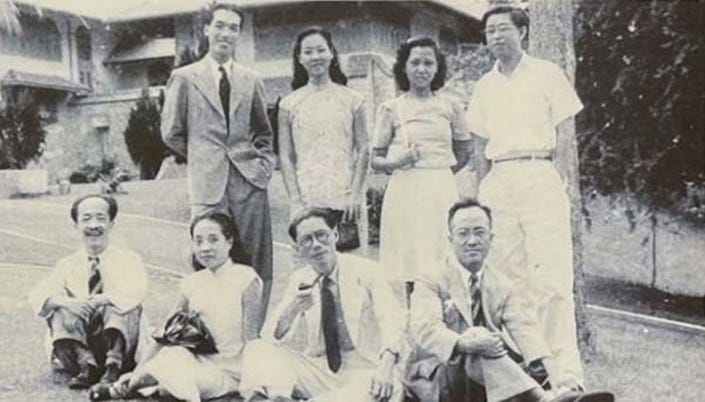Weekend Long Read: A Wartime Escape — Retracing the Footprints of My Granduncle in Sumatra
Hu Shuli, founder and publisher of Caixin Media, follows the path taken by Hu Yuzhi who fled Singapore when the city was on the brink of falling to the Japanese in 1942
On Dec. 7, 1941, Japan launched a surprise attack on the U.S. Naval Base at Pearl Harbor in Hawaii, marking the beginning of World War II in the Pacific.
Amidst the chaos of war, my grandfather, Hu Zhongchi, and his elder brother, Hu Yuzhi, found themselves separated. Yuzhi was in Singapore serving as the Chief Editor of Nanyang Siang Pau, an influential Chinese-language newspaper in Southeast Asia, while Zhongchi resided in Hong Kong overseeing editorial affairs at Hua Shang Bao, a newspaper based in the city.
Both of them, along with many other Chinese intellectuals in the region, would soon find themselves in great peril as they sought to navigate their way through – and survive - the war.
Zhongchi managed to escape the danger by joining a secret rescue mission carried out by one of the Communist Party of China’s anti-Japanese organizations, the East River Column. In January 1942, this action saved over 800 patriots and intellectuals in Hong Kong, including prominent writers and journalists like Mao Dun, Zou Taofen, and Fan Changjiang.
The daring rescue by the East River Column has emerged as a prominent topic in Chinese television dramas and non-fiction works.
Meanwhile, Hu Yuzhi and other anti-Japanese Chinese intellectuals in Singapore, such as the famous poet Yu Dafu and writer Wang Renshu, had to engineer their own escapes. This involved embarking on an epic trek along the equator for a period that lasted three years and eight months.
Cut off from their homeland with no way to correspond with the outside world, rumors spread in the Chinese mainland claiming that Hu Yuzhi had passed away in exile. There was even a special edition magazine published in China mourning him. Only after Japan’s surrender on Aug. 15, 1945, did Hu Yuzhi return to Singapore. Tragically, Yu Dafu was secretly executed by the Japanese Kempeitai — his blood spilled in the forests of Sumatra.
In December 1940, Hu Yuzhi officially assumed the position of Editor-in-Chief of the Nanyang Siang Pau. The International News Agency provided him with prompt updates on the Chinese People’s War of Resistance against Japanese Aggression. Hu Yuzhi, in turn, wrote daily editorials for the newspaper.
Apart from the memories of those directly involved, to the best of my knowledge there has been no concrete retracing of this arduous journey.
Time flies, and 80 years have already passed. In March of this year, while attending a conference in Singapore, an idea struck me: Perhaps I could retrace this journey as a way to commemorate our ancestors and possibly gain some unique insights?
I spent eight days in Sumatra in June, retracing their footsteps. Compared to the perilous adventures undertaken by Hu Yuzhi and his companions 80 years ago, eight days can hardly compare. However, for me, making every effort to complete this historical expedition had profound significance.
On June 14, I boarded a ferry and commenced this journey into history through Sumatra.
A photo of colleagues at Nan Chiau Jit Pao taken in 1947. Hu Yuzhi is seated on the far left in the front row, and Shen Zijiu, his wife, is seated to his left.
Keep reading with a 7-day free trial
Subscribe to Caixin Global China Watch to keep reading this post and get 7 days of free access to the full post archives.





